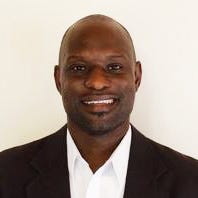DODMA not interested in ‘’global disaster talk shows’’
Commissioner for Disasters Charles Kalemba acknowledged that the meeting is important for Malawi, but stated that no delegation had been dispatched due to "registration" difficulties.
Indonesia: Despite the fact that the country is still reeling from the devastation caused by tropical storm Ana and cyclone Gombe, Malawi has for the first time self-excluded itself from UN global disaster risk reduction discussions.
Over 187 countries will meet on the platform to review the implementation of the 2015 Sendai Framework for Disaster Risk Reduction, a global blueprint for disaster risk reduction activities.
They will also talk about disaster risk financing, the advancement of Africa's multi-hazard early warning system and early action plan, and the implementation of Africa's post-covid-19 recovery plan.
The Global Platform for Disaster Risk Reduction (GPDRR) will begin on Wednesday, but Malawi's seat in Bali will be empty, as evidenced by two preparatory conferences that concluded on Tuesday evening.
This also implies that Malawi will pass up an excellent opportunity to issue an official statement about the country's post-disaster situation and request additional international assistance.
Officials from the Department of Disaster Management Affairs (DODMA) do not appear to have a better plan for the conference, though virtual participation is an option.
In response to a WhatsApp inquiry from Malabo, Equatorial Guinea, where he is a member of the presidential entourage, Commissioner for Disasters Charles Kalemba acknowledged that the meeting is important for Malawi, but stated that no delegation had been dispatched due to "registration" difficulties.
He did not confirm reports that the government was slow to respond to the sponsorship window of the UN Office for Disaster Risk Reduction.
He did not confirm reports that the government was slow to respond to the sponsorship window of the UN Office for Disaster Risk Reduction.
Kalemba, on the other hand, referred to the meeting as "one of the talk shows" that have not benefited Malawi.
Regarding the significance of the GPDRR to Malawi, Kalemba stated, "I believe it has the potential to facilitate global knowledge sharing. I do not believe in these talk shows, which have not benefited Africa for decades. The greater the number of meetings and talk shows, the more things remain the same.''
Multiple disasters have slowed Malawi's economic growth and jeopardised the country's efforts to meet the 2030 Sustainable Development Goals (SDGs) and the MW2063 agenda.
As a result, stakeholders in disaster risk reduction have urged the government to broaden and double its investments in drr interventions.
In response to a comment request, Ray Misomali, a disaster risk management specialist, stated that, in addition to the global drr platform, there is a great need for countries within their regions to intensify engagements, collaborate, and share resources where possible, citing SADC and the AU as key institutions whose member states have not fully embraced the drr collaboration agenda.
Misomali stated, "I have mixed feelings about this conference; I partially agree with the commissioner, but I also believe that such gatherings provide additional benefits; the key is to maintain momentum and implement actions locally."
Concerning local actions, Kalemba confirmed that the government has begun to collaborate with government departments and development partners in order to incorporate drr into their plans and transition away from handouts.
"We have also asked our partners to stop funding talk shows and instead invest in more practical DRR interventions, such as catchment management, the construction of dikes, the installation of solar-powered irrigation systems, and the alteration of the farming season in flood-prone regions," said Kalemba.
Joko Widodo, President of Indonesia, Amina Mohammed, Deputy Secretary-General of the United Nations, and Mami Mizutori, Special Representative of the Secretary-General for Disaster Risk Reduction, have all been scheduled to speak at the GPDRR's official launch.
Recent floods killed over 80 people and destroyed maize fields and other critical infrastructure.
Malawi has signed the Sendai Framework for drr and is one of 155 countries out of 187 that have begun reporting progress through the Sendai Monitor, an online voluntary reporting system.






